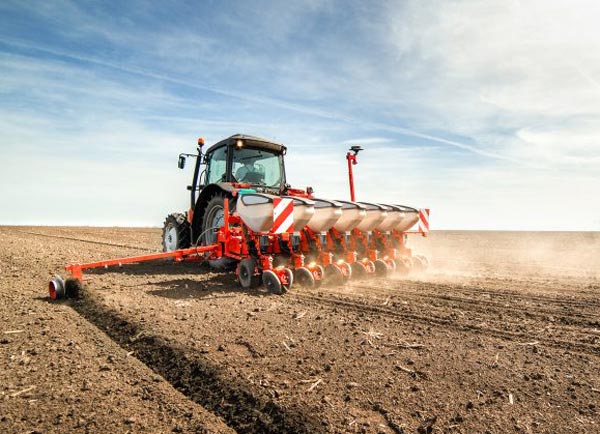

Traktor für Kohlenstoffumsatz
Dusan-Kostic-Fotolia
Quelle: Alpen-Adria-Universität Klagenfurt
“One of the greatest uncertainties pertaining to our current understanding of climate change relates to the biomass turnover time, a key ecosystem parameter which determines the amount of carbon withdrawn from the atmosphere and is thus critical for climate change“, Karl-Heinz Erb (Institute of Social Ecology) explains. He and his colleagues are the first to calculate the human impact on the global biomass turnover time. This involved calculating the change in carbon turnover time by comparing the actual vegetation with a hypothetical vegetation state which hypothetically excludes any form of land use.
The results, which are presented in the current issue of Nature Geoscience, reveal that biomass turnover time is halved by land use. Erb further explains: “This acceleration affects all biomes more or less equally, though with significant differences between land-use types such as forestry or agriculture.
The conversion of forests to croplands results in massive acceleration effects, while the use of forests and natural grasslands is also significant, albeit at a considerably lower level per unit of area. However, from a global perspective, these land-use types affect large areas and thus their contributions is also significant.
While conversion of forests to croplands and pastures is responsible for 59 per cent of the acceleration, forestry contributes 26 per cent, and the use of natural grasslands for 15 per cent in total. This finding is noteworthy, because in most studies the effects of forestry and grazing are neglected and robust and adequate data sets are especially scant in this area.
Our study demonstrates that enhanced knowledge about the various forms of land use, including these more subtle ones, will be central to increasing the predictive capabilities with regard to carbon dynamics and future developments of climate change, for instance.”
Responding to the question about the potential implications of this acceleration for humanity, Erb specifies: “What we do know today, is that it affects climate change; what we don’t know yet, is to which extent it does so.”
But as the demand for biomass is growing very rapidly at the moment, this could lead to a further acceleration of the carbon cycle. This could affect the sink function of ecosystems, in other words, their capacity to withdraw carbon from the atmosphere and store it in long-living pools, a central naturel process slowing climate change, would gradually dwindle away. The results clearly illustrate that using biomass as a resource is not climate change neutral.
Erb, K.-H., Fetzel, T., Plutzar, C., Kastner, T., Lauk, C., Mayer, A., Niedertscheider, M., Körner, C., Haberl, H., 2016. Biomass turnover time in terrestrial ecosystems halved by land use. Nature Geoscience, doi:10.1038/ngeo2782.















